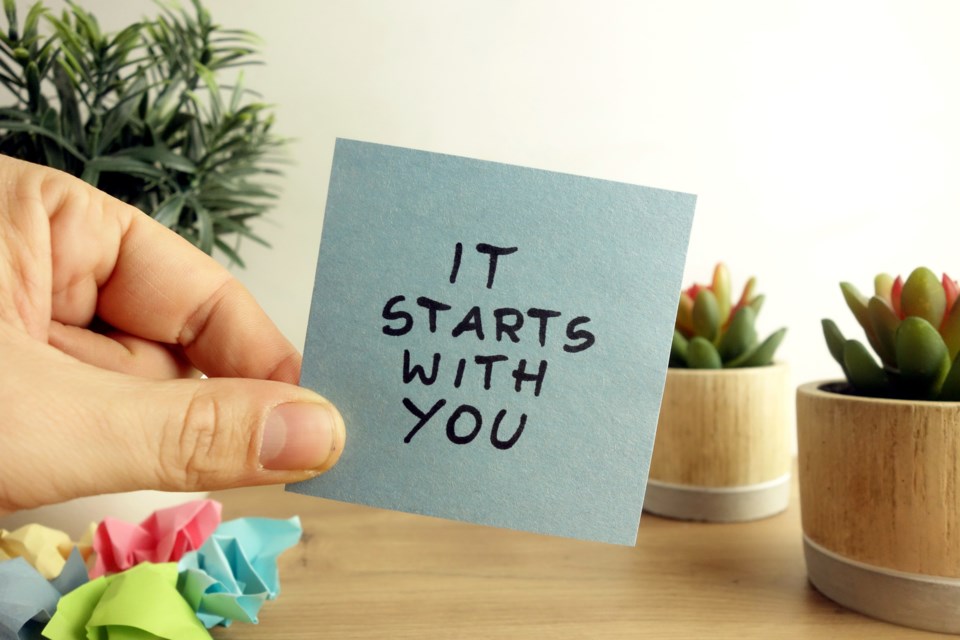Communicating our triggers is always risky, even if they are shared in a non-accusational way, as the recipient may not be fully open to hearing them and may get defensive. In my personal life I definitely trigger a couple individuals on a regular basis, and am triggered myself. This got me pondering the whole trigger dynamic in relationships.
How many times do people blame others for triggering them? When we understand our triggers and have the intention to heal the source of them, the triggers no longer have a hold on us. It is very important that we don’t blame others for our own triggers. They belong to us and we are responsible for understanding them and working on softening and healing them. The world is not going to change and accommodate us to prevent us being triggered.
People who are regularly and easily triggered are often avoided by others, as they may be perceived as being negative, irritable or controlling. This leaves the person who is triggered feeling alone in their angst. A trigger is an emotional response to stimuli that reminds one of their past pain or lack of control in a situation. Everyone has issues from the past that haven’t been resolved. A trigger is deeply personal and is our psyche’s way of telling us that something needs to be paid attention to, understood and healed. These triggers are owned by the individual who is having the strong feeling and in the moment of being triggered, it is their responsibility to pause before acting with blame, defensiveness or aggression. Road rage is an example of triggered aggression (and pent-up stress).
When we take things personally and feel resentment, we will perceive everything as attacks on us even if the other party is oblivious, and then our actions come from a justified victimized place. When we lash out in response to being triggered, we may call it owning our truth or establishing boundaries … but in truth, it may feel like criticism to the person on the receiving end. If we don’t acknowledge or accept responsibility for our own behaviour when in our triggered state, then we are hard to be around and will sink into negativity, resentment and the victimized cycle. It is very difficult to be in a relationship with someone who is easily triggered and it can feel like walking on egg shells around them.
The only antidote, as I see it, is to try to stay calm and have the courage to look at all parts of the relationship dynamic. This is much easier said than done. If we are intentionally doing something to trigger the other, then that is on us and we need to acknowledge and correct our own behaviour. But if not, then we could look behind the triggered behaviour with love, empathy and compassion to care about what is going on for them that causes them to feel this way. The other person may be dealing with some serious self-doubt, insecurity, resentment, old pain, depression, anxiety, other mental wellness issues or physical health issues (i.e.: gut health really affects mental health). Everything has the opportunity to either offend us or to elicit in us a compassionate response.
It is work to step out of the dynamic of complain, blame, shame and competition with each other, but in our quest to be healed in this human experience, we need to take the opportunities to bring love into the equation whenever we can. We can pause, feel our own reaction, maybe take some space (remove ourselves), and contemplate with loving intention what a solution may be. If the solution is generated by our egoic mind (how to make them wrong and make them pay - competition), then we need to take more time and try harder to connect to our own love. If one has a spiritual practice, this would be a good time to pray for loving guidance. We have to be the difference if we want to see a difference. This is hard work but is well worth doing and is very healing for all, and the process is empowering as we examine our intentions honestly.
Claire Nielsen is a health coach, author, public speaker and founder of www.elixirforlife.ca. The information provided in the above article is for educational purposes only and is not a substitute for professional health and medical advice. Please consult a doctor or healthcare provider if you're seeking medical advice, diagnoses and/or treatment.



